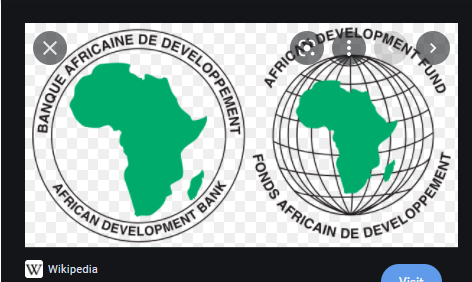AfDB joins others who fear debt default
By Jeph Ajobaju, Chief Copy Editor
Akinwunmi Adesina, African Development Bank (AfDB) President, has joined the chorus of criticism against Nigeria’s mounting debt, expressing concern over the source of revenue for debt servicing.
He reiterated that Nigeria’s debt service to revenue ratio is high at 73 per cent, worsened by reliance on oil export proceeds.
Latest data from Debt Management Office (DMO) shows Nigeria’s debt at N35.46 trillion in the second quarter of 2021 (Q2 2021).
Debt servicing in the 2022 budget of N16.39 trillion accounts for N3.61 trillion or 22 per cent of expenditure and 35.6 per cent of revenue.
“Nigeria must decisively tackle its debt challenges. The issue is not about the debt-to-GDP ratio, as Nigeria’s debt-to-GDP ratio at 35 per cent is actually still moderate.
“The big issue is how to service the debt and what that means for resources for domestic investments needed to spur faster economic growth,” Adesina said at the Mid-Term Ministerial Performance Review retreat in Abuja, per Nairametrics.
“The debt service to revenue ratio for Nigeria is high at 73 per cent. Things will improve as oil prices recover, but the situation has revealed the vulnerability of Nigeria’s economy. To have an economic resurgence, we need to fix the structure of the economy and address some basic fundamentals.
“Nigeria’s challenge is revenue concentration, as the oil sector accounts for roughly 75 per cent of export revenue while according to the statistics of the Central Bank 50 per cent of all government revenue.
“What is needed for sustained growth and economic resurgence is to remove the structural bottlenecks that limit the productivity and the revenue earning potential of the huge non-oil sectors.”
__________________________________________________________
Related article:
AfDB warns of likely debt default by Nigeria, others
__________________________________________________________
Adesina advised Abuja to boost productivity and revenue from the non-oil sector with appropriate and synergistic fiscal and macroeconomic policies, especially flexible market based exchange rate that will enhance international competitiveness.
He also stressed the need for infrastructure as critical to unlocking the full potentials of the Nigerian economy.
“Nigeria will need $25 billion a year for investment in infrastructure. Financial innovations should be prioritized as the government alone cannot afford this huge financial cost. The private sector should be given more incentives to invest in infrastructure.”
He commended the federal government’s N15 trillion infrastructure fund, a initiative for tax credit for private sector investment in infrastructure.
He said Public-Private Partnership (PPP), pension funds, and others should be accelerated to invest in major infrastructure countrywide.











